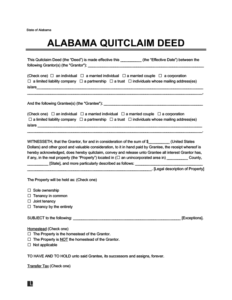In Colorado, employment is generally “at-will,” which means that an employer has the right to terminate a worker for any reason and without prior notice. However, under the same circumstances, an employee may also quit their position. You cannot, however, be fired for an unlawful purpose (such as disclosing sexual harassment at work). Everything you need to know about “Is Colorado a at Will State for Employment” has been addressed, along with information on how at-will employment operates and your fundamental rights and restrictions under this legislation.
What Is at Will Employment?
In most US states, employment relationships are regarded as at-will. However, what does it mean to be employed at will?
If a person is employed at will, their employer may fire them for any reason whenever it’s convenient for them, as long as it doesn’t contravene any state or federal laws, regardless of the reason, and without giving any warning or justification beforehand.
On the other hand, a worker is free to leave their position at any moment and is not required to give a reason or any advance notice. At-will employment is reciprocal, therefore terminating it will not have any legal consequences for either party.
Even with this flexibility, at-will employment can have certain contractual stipulations that provide employers the ability to modify the terms of at-will employment regarding pay, benefits for employees, paid time off, and timetable for work.
Additional clauses specifying the conditions or circumstances necessary for termination of employment may also be included by employers.
Is Colorado a at Will State for Employment
Colorado is a state where employment is at-will. Until a contract specifies otherwise, neither the employer nor the employee must present a reason for ending the working relationship. An employer may terminate an employee at any time, for any reason, and without providing prior warning. An employee doesn’t need to provide two weeks’ notice. Generally speaking, this implies that the terms of employment, such as compensation, working conditions, benefits, paid time off, and holidays, are subject to change by the employer.
In Continental Air Lines, Inc. v. Keenan, 731 P.2d 708 (CO 1987), the Colorado Supreme Court acknowledged the legal concept of “employment-at-will.” An employee is said to be at-will if they are recruited without an employment contract and for an undetermined amount of time.
At-Will Employment Exemptions
An employee cannot be fired for any reason just because they were recruited on an at-will basis. In Colorado, the legislature, the courts, and Congress have all established multiple exclusions to the at-will employment law. Exceptions to the at-will employment policy include:
Discrimination
Employers are not allowed to fire an employee for specific discriminatory reasons under Colorado or federal law. Employers are prohibited by Colorado law from terminating workers on the following grounds: race, color, national origin, ancestry, creed, religion, sex, age, physical or mental handicap, marriage to a coworker (barring unusual circumstances), or sexual orientation.
Public Policy Violation
According to court rulings, an employer cannot terminate an employee for doing something that goes against public policy or the general welfare. Among the instances include terminating a worker for:
Utilizing a legal privilege. An employee cannot be let go for submitting a workers’ compensation claim, for instance.
Refusing to carry out illicit activity. For instance, if a worker declines to testify against their employer in court, they cannot be fired for it.
Reporting legal transgressions. For instance, registering false tax returns or employment law infractions by an employer is not grounds for termination for an employee.
Carrying out public interest-based activities. An employee cannot be fired, for instance, if they participate in legal off-duty activities, serve on juries, or enlist in the National Guard or Reserves.
Violating an Implied or Oral Agreement and Promissory Estoppel
Courts may conclude that an oral or implicit contract exists despite the absence of a written employment contract between the employer and employee based on the employer’s remarks, practices, or conduct. For the most part, contracts can be enforced without being in writing. When there is an offer, an acceptance of the offer, and adequate consideration (i.e., value provided) by the parties, a contract is formed. Oral offers and oral acceptances of employment contracts can result in a legally binding oral contract.
Employment Agreements
By contrast, the at-will employment relationship may be changed. An illustration may be an agreement between an employer and an employee stating that the worker will be employed for one year. An employment contract may occasionally provide that an employee may only be fired with cause. If it occurs, terminating someone without cause—which is permitted by the general principle—may result in legal issues such as a lawsuit alleging wrongful termination or breach of contract. Of course, there is often intense debate over “cause.”
Employee handbooks may occasionally be regarded as employment contracts that alter the at-will relationship under the same general rule. For instance, the company’s progressive discipline policy may always be followed, according to the employee handbook. In Colorado, firing an employee without providing a written notice may result in legal ramifications if the employee handbook mandates that the employer do so, for example, before terminating the worker.
Employment Laws
Some regulations provide some leeway to mitigate the harsh outcomes that might arise from a strict interpretation of the concept, in addition to the ability to modify the at-will relationship by contract. But these instances are rather limited, despite what the general public believes. In most cases, the doctrine of at-will will take precedence. Below is a quick summary of the primary exclusions.
Discrimination in Employment
In Colorado, an employee cannot be fired due to membership in a protected class. The laws that apply to the company may vary based on its size. For instance, Title VII of the Civil Rights Act of 1964 forbids firing someone on the grounds of their national origin, race, religion, or sex at the federal level. Age (above 40) and disability status are protected by other legislation.
Colorado’s statute is significantly more expansive, encompassing a greater number of companies and safeguarding those categories in addition to sexual orientation and gender identity. If you employ people in Colorado, you probably have coverage.
This implies that you cannot fire someone for being under protection due to their protected status. In that case, an employment discrimination lawsuit won’t be prevented by the at-will employment arrangement.
Is Colorado a at Will State for Employment: Legitimate Off-Duty Behavior
Furthermore, Colorado has a legitimate off-duty conduct regulation that prohibits firing an employee for engaging in lawful activities after hours.3. But there are boundaries. The behavior must first be genuinely legal. For instance, smoking marijuana is still prohibited by federal law even though it is “legal” in Colorado. Therefore, terminating a worker for marijuana use won’t violate this legislation. However, it might be possible to fire someone for smoking cigarettes, which was the original objective of the statute. It is crucial to remember that this only applies to times when the employee is not at work and off the clock; it has no bearing on what the employer may demand of them during working hours. Furthermore, this law has multiple exceptions. Employers may, for instance, be allowed to restrict an employee’s behavior while they are not on the job to prevent a conflict of interest with their duties.
Inappropriate Release that Violates Public Policy
Lastly, it’s not acceptable to fire someone for defying the law. Usually, this is classified as “wrongful discharge in violation of public policy.” Staff members usually receive an ultimatum in these situations: follow questionable business practices or go. After being fired, individuals can typically return and claim that their dismissal was unfair and that they need to get damages for the harm it caused.
Once more, this is a limited exception. It is surprising to see that this exception does not hold even in cases when the employer falsely coerces an employee to break a policy, only to subsequently terminate them for that infraction. This could happen, for example, when a written policy specifies something but operates very differently in practice.
Is Colorado a at Will State for Employment: FAQs
Is it possible to be fired without cause in Colorado?
The at-will employment provision in Colorado permits either the employer or the at-will worker to end the job relationship at any time, for any reason, and with no prior notice. This rule does have some restrictions, though.
In Colorado, what is wrongful termination?
A simple definition of wrongful termination is the dismissal of an employee for illegal actions. The skilled employment lawyers at HKM will take a stand and defend workers who were let go for improper grounds.
Is it legal in Colorado to resign without cause?
In turn, the employee is free to leave the company at any moment, with or without prior warning.
Is Colorado a at Will State for Employment: Conclusion
At-will employment does include a few other, uncommon exclusions, such as protection from jury duty or certain whistleblower difficulties. Government workers also frequently experience differential treatment. If an employee does not fall under one of the exclusions and can demonstrate that their termination was for that reason, they may find it difficult to overcome the at-will presumption. Despite this, lawsuits are still possible because of the false perception of wrongful termination. Furthermore, even when these lawsuits are not justified, they might nevertheless be worrisome. It would be beneficial for employers to be upfront about their employment standards and make an effort to prevent litigation in the event of a separation.



